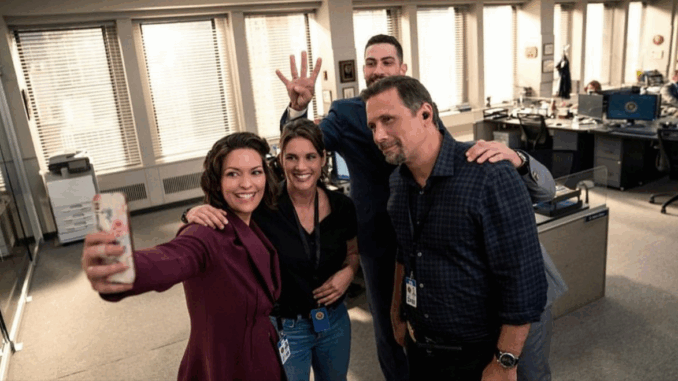
Breaking the Mold: Zeeko Zaki as OA Zidan
When Zeeko Zaki was cast as Special Agent Omar Adom “OA” Zidan on CBS’s FBI, it marked a significant turning point in television. Originally, the character wasn’t written as Arab-American, but after Zaki’s powerful audition, the role was reimagined to reflect his Egyptian-American heritage. This made OA one of the first Arab-American Muslim protagonists in prime-time network TV — a bold and long-overdue move in Hollywood.
In interviews, Zaki has often reflected on how meaningful this role is to him personally and culturally.
“I can’t believe I get to be one of the first protagonist Arab Muslims,” he once said. “It’s more than just a role — it’s a responsibility.”
From Stereotypes to Center Stage
Earlier in his career, Zaki frequently found himself cast in villain roles, often tied to harmful stereotypes about the Middle East. But his breakthrough in FBI gave him the opportunity to reshape the narrative — and offer viewers a new kind of American hero.
He explained,
“When audiences see someone like me in a leading role — someone who looks like them or shares their background — it helps build understanding. It shows that we’re more than just side characters or headlines. We belong here.”
OA Zidan is not a sidekick, a criminal, or a stereotype. He’s principled, patriotic, emotionally intelligent, and fiercely committed to justice.
Preparing for the Role: Mind and Body
To embody an FBI agent convincingly, Zaki dove deep into preparation. He worked with real federal agents, studied documentaries, and spent time training both physically and mentally for the part. The role also pushed him to transform personally — including losing over 100 pounds to meet the physical demands of the character.
Each episode requires stamina, discipline, and focus, as Zaki appears in nearly every scene alongside co-star Missy Peregrym. Despite the workload, he embraces the challenge:
“I want to give everything I can to this role. It means that much to me.”
Changing Hollywood, One Role at a Time
Zeeko Zaki’s casting as OA came at a time when Hollywood was slowly beginning to address its diversity gaps. For Zaki, this role isn’t just about screen time — it’s about visibility, trust, and change.
He’s spoken about how growing up Arab-American after 9/11 came with a heavy sense of “being watched” or misunderstood.
“Now, instead of being watched, I get to be the one protecting. That shift is powerful.”
And it’s resonating with viewers — especially young people who finally see a hero who shares their story, their language, or their last name.
A Fan Favorite and Role Model
Since the show’s premiere, OA Zidan has become a fan-favorite character — known for his compassion, tactical skill, and quiet strength. Viewers frequently praise Zaki’s grounded performance and his ability to bring heart and humanity to the FBI’s tough world.
Beyond the screen, Zaki is also active in supporting refugee aid and youth empowerment, using his platform to inspire others and advocate for real-world change.
Why His Role Matters
-
Representation: OA gives Arab- and Muslim-American viewers a character they can see themselves in — not as an “other,” but as a protector and professional.
-
Authenticity: Zaki brings real cultural nuance to the role, from language to values, showing that identity can be a strength, not a limitation.
-
Breaking Barriers: His presence in a mainstream procedural drama opens doors for future actors of similar backgrounds.
-
Challenging the Norm: Rather than conforming to what Hollywood expects, Zaki has redefined what a lead character can look and sound like.
Final Thoughts
Zeeko Zaki’s rise from background roles to the lead of one of CBS’s most-watched shows is more than just a personal triumph — it’s a cultural milestone. His role in FBI challenges assumptions, creates space for new stories, and proves that representation isn’t just important — it’s powerful.
As FBI heads into future seasons, Zaki’s OA will continue to inspire, protect, and stand as a proud example of what television — and America — can look like when it reflects everyone.
